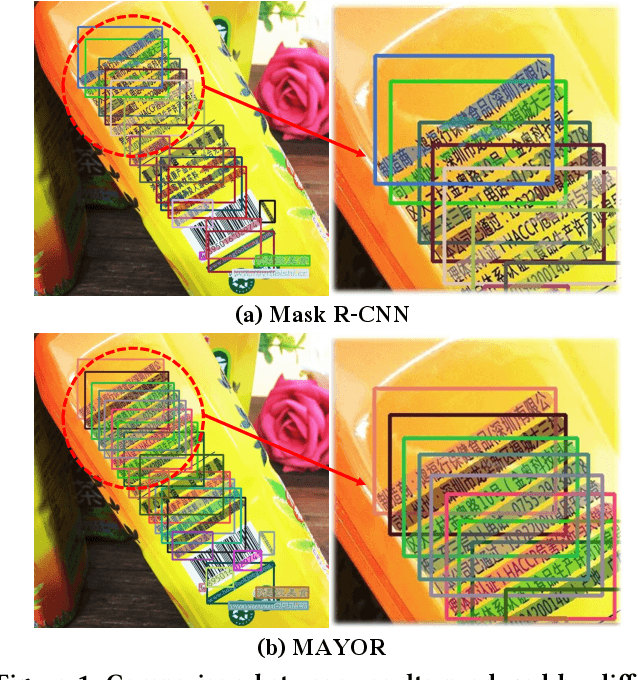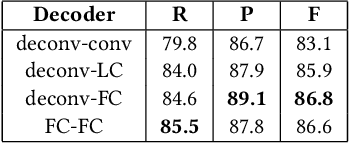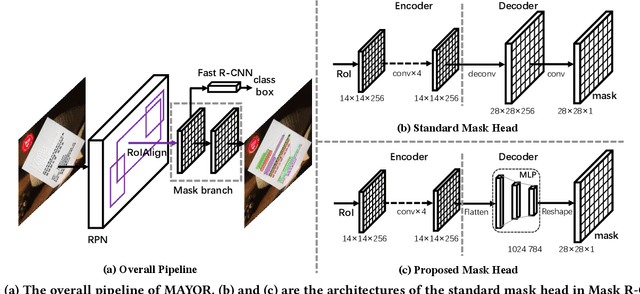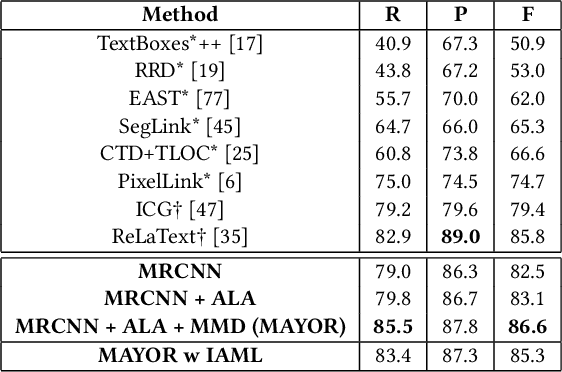Mask is All You Need: Rethinking Mask R-CNN for Dense and Arbitrary-Shaped Scene Text Detection
Paper and Code
Sep 08, 2021



Due to the large success in object detection and instance segmentation, Mask R-CNN attracts great attention and is widely adopted as a strong baseline for arbitrary-shaped scene text detection and spotting. However, two issues remain to be settled. The first is dense text case, which is easy to be neglected but quite practical. There may exist multiple instances in one proposal, which makes it difficult for the mask head to distinguish different instances and degrades the performance. In this work, we argue that the performance degradation results from the learning confusion issue in the mask head. We propose to use an MLP decoder instead of the "deconv-conv" decoder in the mask head, which alleviates the issue and promotes robustness significantly. And we propose instance-aware mask learning in which the mask head learns to predict the shape of the whole instance rather than classify each pixel to text or non-text. With instance-aware mask learning, the mask branch can learn separated and compact masks. The second is that due to large variations in scale and aspect ratio, RPN needs complicated anchor settings, making it hard to maintain and transfer across different datasets. To settle this issue, we propose an adaptive label assignment in which all instances especially those with extreme aspect ratios are guaranteed to be associated with enough anchors. Equipped with these components, the proposed method named MAYOR achieves state-of-the-art performance on five benchmarks including DAST1500, MSRA-TD500, ICDAR2015, CTW1500, and Total-Text.
 Add to Chrome
Add to Chrome Add to Firefox
Add to Firefox Add to Edge
Add to Edge